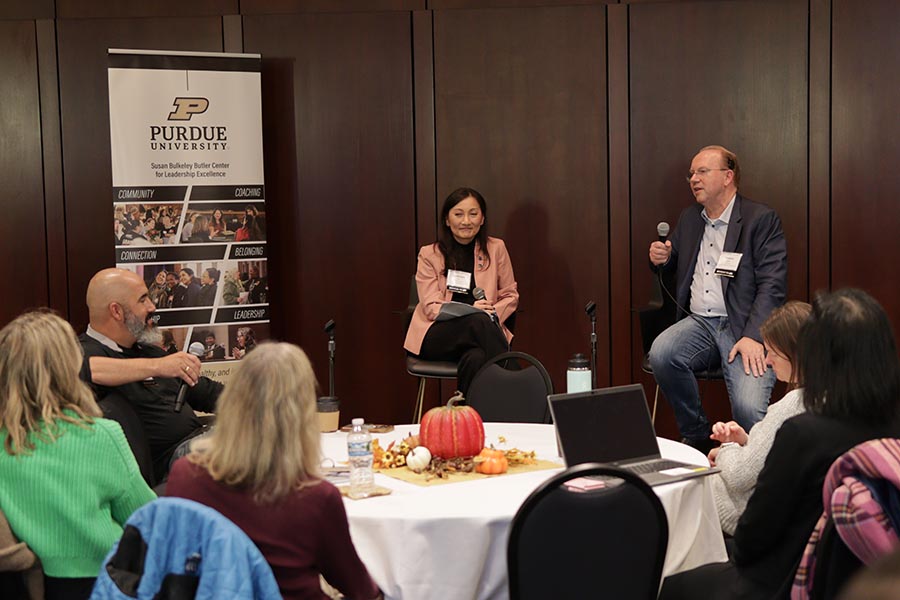Fireside Chat honors Stephan Biller, launches Purdue’s updated faculty mentoring initiative

The Susan Bulkeley Butler Center for Leadership Excellence (Butler Center) hosted a Fireside Chat on faculty mentoring featuring Stephan Biller and Yuehwern Yih on Oct. 29 at the Dauch Alumni Center. The discussion marked the launch of the Butler Center’s updated mentoring initiative, Mentoring Pods — a program designed to connect faculty across disciplines and career stages for mutual encouragement, professional growth, and community support.
The event also honored Biller, the Harold T. Amrine Distinguished Professor in the Edwardson School of Industrial Engineering and Director of the Dauch Center for the Management of Manufacturing Enterprises in the Mitchell E. Daniels, Jr. School of Business, as the inaugural recipient of the 2025 Purdue University Faculty Mentor Award.
In his remarks, Biller emphasized the critical role of mentorship in fostering professional development and success among faculty. Reflecting on his transition from industry to academia, he shared lessons from his time at General Electric — where even senior executives, including the CEO, had multiple mentors — an experience that shaped his deep appreciation for continuous learning through mentorship.
“Mentorship can take many forms,” Biller noted. “Some relationships last years, while others are brief but still impactful.” He advised that mentors should measure success not by whether mentees follow every piece of advice, but by whether those mentees grow as professionals.
Yih, the Tompkins Professor in the Edwardson School of Industrial Engineering, echoed that mentoring naturally evolves over the course of one’s career. She emphasized that true mentoring differs fundamentally from supervision: “Chains of control don’t define mentorship — genuine guidance does.”
The speakers also explored how mentors can reflect on and refine their approach. Biller highlighted the concept of reverse mentoring — seeking feedback from mentees, reading about mentoring practices and writing down one’s own mentorship philosophy. He cited the advice from Butler Center Director Sang Woo to articulate that philosophy as a way to remain intentional and self-aware.
Both speakers discussed balancing formal and informal mentoring. While structured programs help maintain regular communication, informal mentoring often emerges organically — for example, when junior faculty are included in larger initiatives and learn through collaboration and observation.
Biller closed the conversation by distilling his approach into a simple principle: “I’m just trying to help people get better.” He underscored that trust lies at the heart of every successful mentoring relationship. “Once trust is built, meaningful mentoring can truly take place,” he said.
